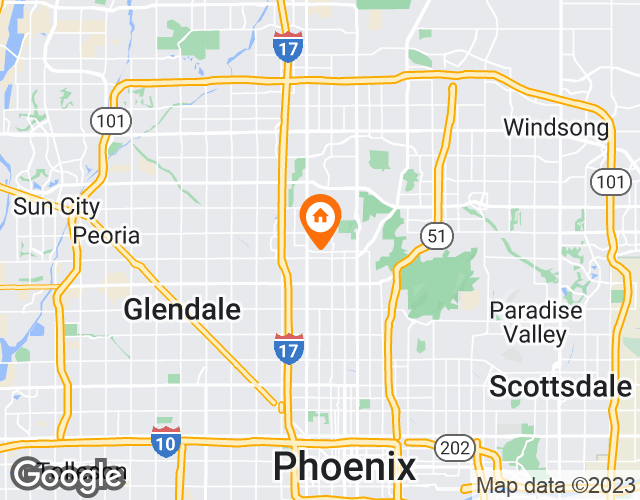(602) 666-4568
is a Robocall
This number also appears as 602-666-4568, 6026664568, (602) 666-4568
- Risk Level:very-high
- Carrier:Unknown
- Location:Phoenix, Arizona

- Line Type:Landline
- Recording:
- Transpript:Yes, hello. This call may be monitored or recorded. Luis Carrillo, right? Yes. Am I speaking to Louis? Okay, just to confirm, I'm speaking to Louis Carrillo, born on February 12th, correct? Yes. Okay. Can you hear me, Louis?

About Phoenix
Arizona is a state located in the southwest of the United States, bordering California to the west, Nevada to the northwest, Utah to the north, New Mexico to the east and Mexico to the south. It is known for its desert and mountain landscapes, including the Grand Canyon of Colorado. The area code for Arizona is 480/520/602/623/928 and its zip code begins with 85-86. Due to a large number of elderly people living in Arizona and popularity of tourism in areas like Phoenix and Tucson, there are many different types of fraudulent calls made in this state. These include scams related to fake medical insurance or deceptive financial services. Realcall can be a useful tool for intercepting these fraudulent calls before they cause harm.
Top 20 Spam Calls

Just last week, people got RealCall protection!





Every spam call has been blocked since I’ve installed this app. I get 10-15 robocalls daily and never get distractions while I’m working or with family. Very happy with it.
00brunette





No annoying calls!! Though it also silences all calls not in contacts. I’d like to get all calls from my local phone numbers.
pennybeanpole





I own my own aesthetics business, as well as I teach yoga. It is important for me to be able to stay in touch with my clients as well as my healthcare providers as I am chronically ill but this also leads to me having incessant phone calls that I waste time on. Bec I was literally losing my mind, and, starting to waste a lot of stress on said calls that didn\'t need to go through. If you are receiving too many Robo calls or too many spam calls. This is worth your money, especially if you own your own business.
Nacomanrandysavage





Finally sanity! Thanks! No spam calls!
WENDEE WOO





Well, so far, this is blocked all of the Robo calls and scam calls so I would definitely have to say that I am happy with this app.
josh121984
Comment
2 user reports for (602) 666-4568
Fake Midland phantom debt collection scam by madarchod criminals phoning from India This is what the Federal Trade Commission calls a phantom debt collection scam where the scammer pretends to be a debt collector, bank, credit agency, billing department, lawyer, or law enforcement and threatens to sue or arrest you using lies, harassment, and intimidation to collect on fake debts that you do not owe. Debt collection scams are very common because many people carry debts, so it is easy for scammers to phish for gullible victims. And Indian debt collection scams have vastly increased this year to prey upon the larger number of people in debt. The India scammer asks for you by your name in order to sound like a personal phone call to gain your trust, but they are randomly auto-dialing everyone. The scammer may say "I am calling on a recorded line" just to sound official, but it is fake! The scammer either mentions an unpaid debt and past due amount that must be paid immediately or says that they have frozen your account due to fraudulent activity. The scammer then asks for your online banking login credentials, Social Security number and date of birth "for verification purposes", and says you can settle the debt by paying with a credit card, prepaid debit card, or eBay gift card, or demands that you wire transfer the payment, or asks for your bank account/routing number. Or the scammer pretends to offer a "50% settlement" deal where "you only have to pay half" of your fake debt. About 65% of North America scam calls come from India and 30% come from the Philippines. India scammers run hundreds of fraud, extortion, and money laundering scams every day such as posing as a fake pharmacy, fake Social Security officer saying your benefits are suspended, IRS officer collecting on fake unpaid back taxes, debt collector threatening you for fake unpaid bills, fake bank/financial/FedEx/UPS/DHL scams, pretending to offer fake health insurance, car warranty, student loan forgiveness, credit card and debt consolidation services, posing as Amazon to falsely say an unauthorized purchase was made to your credit card or your Prime membership was auto-debited from your bank, posing as Microsoft/Dell/HP/Apple to say your account has been hacked or they detected a virus on your computer, fake "we are refunding your money" or "your account has been auto-debited" scams, fake Google/Alexa listing and work-from-home scams, posing as electric utilities, Verizon, AT&T, or Comcast, fake solar panel and home purchase offers, fake fundraisers asking for donations, fake phone surveys, and the scammers try to steal your credit card, bank account/routing number, Social Security number, and personal information. A India call center may rotate through a fake Social Security, subscription auto-renewal, pharmacy, and credit card offer scam within one week. Philippines scammers focus more on auto/home/health/life insurance, Social Security and Medicare identity theft. Scammers use disposable VoIP phone numbers (e.g. MagicJack devices) or they spoof fake names and numbers on Caller ID. Anyone can use telecom software to phone with a fake CID name and number. Scammers spoof thousands of fake 8xx toll-free numbers. CID is useless with scam calls unless the scam asks you to phone them back. CID area codes are never the origin of scam calls since scams use spoofed CID numbers from across the US and Canada, numbers belonging to unsuspecting people, invalid area codes, and fake foreign country CID numbers; e.g. fake women crying "help me" emergency scams often spoof Mexico and Middle East CID numbers. Scammers often spoof the actual phone numbers of businesses such as Apple, Verizon, and banks to trick you into thinking the call is valid. How can you avoid being scammed by phone calls? NEVER trust any unsolicited caller who: sells something (most unsolicited calls are scams so your odds of saving money are very poor); asks for your Social Security number; offers a free gift or reward; threatens you with arrest/lawsuit or says you need to reply back soon (pressure tactic); asks you to access a website, download a file, wire transfer money or buy prepaid debit/gift cards; claims suspicious activity on your account; says your subscription is being refunded or auto-renewed/auto-debited; and all pre-recorded messages. Recordings are far more likely to be malicious scams and not just telemarketer spam. All unsolicited callers with foreign accents, usually Indian or Filipino, are mostly scams. Filipino scammers tend to speak better English than Indian scammers. Filipinos speak English with a subtle accent having a slight trill. Scams often say that you inquired about a job, insurance, social security benefits, or that you previously contacted them or visited their website. A common India phone scam uses a fake Amazon recording about a purchase of an iPhone, but Amazon never robo-dials and Amazon account updates are emailed. Many banks use automated fraud alert calls to confirm a suspicious purchase, but always verify the number that the recording tells you to phone or just call the number printed on your credit card. Some scams ask for your credit card for purchase of their fake product or service. The scammer calls you back one day later to say their credit card machine is broken, so you must wire transfer the payment to them. After you have wired the money to them, they still overcharge your credit card after they change phone numbers, so they rob you twice before disappearing. Wire transfers and prepaid debit cards laundered through foreign bank accounts are untraceable. Scammers try to gain your trust by saying your name when they call, but their autodialer automatically displays your name or says your name in a recording when your number is dialed using phone databases that list millions of names and addresses. Scammers often call using an initial recording speaking English, Spanish, or Chinese that is easily generated using text-to-speech translation software to disguise the origin of their India phone room. Some speech synthesis software sound robotic, but others sound natural. To hide their foreign accents, some India scammers use non-Indians in their phone room. Scammers often use interactive voice response (IVR) robotic software that combines voice recognition with artificial intelligence, speaks English with American voices, and responds based on your replies. IVR calls begin with: "Hi, this is fake_name, I am a fake_job_title on a recorded line, can you hear me okay?"; or "Hi, this is fake_name, how are you doing today?"; or "Hello? (pause) Are you there?"; or "Hi, may I speak to your_name?" IVR quickly asks you a short question to elicit a yes/no reply so it hangs up if it encounters voicemail. IVR robots understand basic replies and yes/no answers. To test for IVR, ask "How is the weather over there?" since IVR cannot answer complex questions and it keeps talking if you interrupt it in mid-sentence. IVR usually transfers you to the scammer, but some scams entirely use IVR with the robot asking for your credit card or SSN. A common myth is IVR calls record you saying "yes" so scammers can authorize purchases just using your "yes" voice, but scammers need more than just a recorded "yes" from you - credit cards and SSN. Phone/email scams share two common traits: the CID name/number and the "From:" header on emails are easily faked, and the intent of scam calls is malicious just as file attachments and website links on scam emails are harmful. Scams snowball for many victims. If your personal/financial data are stolen, either by being scammed, visiting a malicious website, or by a previous data breach of a business server that stores your data, then your data gets sold by scammers on the dark web who will see you as fresh meat and prey on you even more. This is why some receive 40+ scam calls everyday while others get 0 to 2 calls per day. If you provide your personal information to a phone scammer, lured by fake 80%-discounted drugs or scared by fake IRS officers, you receive even more phone scams and identity theft can take years to repair. Most unsolicited calls are scams, often with an Indian accent. No other country is infested with pandemics of phone room sweatshops filled with criminals who belong to the lowest India caste and many are thieves and rapists who were serving jail time but released early due to prison overcrowding. Scammers often shout profanities at you. Just laugh at their abusive language. Google "Hindi swear words" and memorize some favorites, e.g. call him "Rundi Ka Bacha" (son of whore) or call her "Rundi Ki Bachi" (daughter of whore). Scammers ignore the National Do-Not-Call Registry; asking scammers to stop calling is useless. You do these scammers a favor by quickly hanging up. But you ruin their scams when you slowly drag them along on the phone call, give them fake personal and credit card data (16 random digits starting with 4 for Visa, 5 for MasterCard), ask them to speak louder and repeat what they said to waste their time and energy.
Fake pharmacy healthcare scam by madarchod criminals phoning from India to steal credit card numbers These fake US/Canadian/Online/Global Pharmacy, Babylon Health, Pharmacy Services, Pharmacy Network, Group Plan Pharmacy, America Online Chemists, Healthcare Specialists, Pain Relief Network, Pain Management Center, and other fake company names are criminals calling from India to steal credit cards, Social Security and Medicare numbers, and your personal data for identity theft. The scammer often asks for you by name to sound like a personal phone call to gain your trust, but they are randomly auto-dialing everyone. The scammer may say "remember you purchased from us before?", "I am calling about your prescription", "we work with Medicare", "we partner with your insurance company", or "our drugs are made in the US", which are all fake just like the fake drugs that they pretend to sell. The scam may involve a fake survey. Pharmacy scams try to sell you fake ED drugs, painkillers, weight loss, fake vitamins, or diabetes drugs. Many fake pharmacies pretend to be a healthcare company and ask for your SSN. If you are a "lucky" scam victim, you receive nothing and the scammers disappear after overcharging your credit card, or the fake drugs are shipped from India but seized by US Customs and law enforcement. If you are an unlucky scam victim, you receive pills/capsules that are just dirt mixed with flour or starch, and these fake drugs are usually tainted with toxic contaminants that destroy your liver and kidneys. More than 85% of all fake drug scams in the world are from India scammers who partner with package counterfeiters to make the fake drugs look authentic. Millions of people die from counterfeit drugs every year. Fake drug scams have persisted for centuries because scammers easily create their own pills/capsules and only a laboratory can verify what is inside them. Anyone can buy tablet pill press or capsule loader machines for under $300 or machines that create perfect-looking pills and capsules for under $1500. Buy a fake Rolex and you look cool. Buy fake drugs and you ruin your health. You are a fool if you think you can buy cheap drugs from scammers who constantly change phone numbers. Most fake pharmacy scammers sell your credit card and personal data on the dark web and then even more scammers prey upon you. About 80% of North America scam calls come from India and 15% come from the Philippines. India scammers run hundreds of fraud, extortion, and money laundering scams every day such as posing as a fake pharmacy, fake Social Security officer saying your benefits are suspended, IRS officer collecting on fake unpaid back taxes, debt collector threatening you for fake unpaid bills, fake bank/financial/FedEx/UPS/DHL scams, pretending to offer fake health insurance, car warranty, student loan forgiveness, credit card and debt consolidation services, posing as Amazon to falsely say an unauthorized purchase was made to your credit card or your Prime membership was auto-debited from your bank, posing as Microsoft/Dell/HP/Apple to say your account has been hacked or they detected a virus on your computer, fake "we are refunding your money" or "your account has been auto-debited" scams, fake Google/Alexa listing and work-from-home scams, posing as an electric utility, Verizon, AT&T, or Comcast to say your service is suspended, fake solar panel and home purchase offers, fake fundraisers asking for donations, fake phone surveys, and the scammers try to steal your credit card, bank account/routing number, Social Security number, and personal information. A India call center may rotate through a fake Social Security, subscription auto-renewal, pharmacy, and credit card offer scam within one week. Philippines scammers focus more on Medicare and SSN/identity theft. Scammers use disposable VoIP phone numbers (e.g. MagicJack devices) or they spoof fake names and numbers on Caller ID. Anyone can use telecom software to phone with a fake CID name and number. Scammers spoof thousands of fake 8xx toll-free numbers. CID is useless with scam calls unless the scam asks you to phone them back. CID area codes are never the origin of scam calls since scams use spoofed CID numbers from across the US and Canada, numbers belonging to unsuspecting people, invalid area codes, and fake foreign country CID numbers; e.g. fake women crying "help me" emergency scams often spoof Mexico and Middle East CID numbers. Scammers often spoof the actual phone numbers of businesses such as Apple, Verizon, and banks to trick you into thinking the call is valid. How can you avoid being scammed by phone calls? NEVER trust any unsolicited caller who sells something (most unsolicited calls are scams so your odds of saving money are very poor); asks for your Social Security number; offers a free gift or reward; threatens you with arrest/lawsuit or says you need to reply back soon (pressure tactic); asks you to access a website, download a file, wire transfer money or buy prepaid debit/gift cards; claims suspicious activity on your account; says your subscription is being refunded or auto-renewed/auto-debited; and all pre-recorded messages. Recordings are far more likely to be malicious scams and not just telemarketer spam. All unsolicited callers with foreign accents, usually Indian or Filipino, are mostly scams. Filipino scammers tend to speak better English than Indian scammers. Filipinos speak English with a subtle accent having a slight trill. Scams often say that you inquired about a job, insurance, social security benefits, or that you previously contacted them or visited their website. A common India phone scam uses a fake Amazon recording about a purchase of an iPhone, but Amazon never robo-dials and Amazon account updates are emailed. Many banks use automated fraud alert calls to confirm a suspicious purchase, but always verify the number that the recording tells you to phone or just call the number printed on your credit card. Some scams ask for your credit card for purchase of their fake product or service. The scammer calls you back one day later to say their credit card machine is broken, so you must wire transfer the payment to them. After you have wired the money to them, they still overcharge your credit card after they change phone numbers, so they rob you twice before disappearing. Wire transfers and prepaid debit cards laundered through foreign bank accounts are untraceable. Scammers try to gain your trust by saying your name when they call, but their autodialer automatically displays your name or says your name in a recording when your number is dialed using phone databases that list millions of names and addresses. Scammers often call using an initial recording speaking English, Spanish, or Chinese that is easily generated using text-to-speech translation software to disguise the origin of their India phone room. Some speech synthesis software sound robotic, but others sound natural. To hide their foreign accents, some India scammers use non-Indians in their phone room. Scammers often use interactive voice response (IVR) robotic software that combines voice recognition with artificial intelligence, speaks English with American voices, and responds based on your replies. IVR calls begin with: "Hi, this is fake_name, I am a fake_job_title on a recorded line, can you hear me okay?"; or "Hi, this is fake_name, how are you doing today?"; or "Hello? (pause) Are you there?"; or "Hi, may I speak to your_name?" IVR quickly asks you a short question to elicit a yes/no reply so it hangs up if it encounters voicemail. IVR robots understand basic replies and yes/no answers. To test for IVR, ask "How is the weather over there?" since IVR cannot answer complex questions and it keeps talking if you interrupt it in mid-sentence. IVR usually transfers you to the scammer, but some scams entirely use IVR with the robot asking for your credit card or SSN. A common myth is IVR calls record you saying "yes" so scammers can authorize purchases just using your "yes" voice, but scammers need more than just a recorded "yes" from you - credit cards and SSN. Phone/email scams share two common traits: the CID name/number and the "From:" header on emails are easily faked, and the intent of scam calls is malicious just as file attachments and website links on scam emails are harmful. Scams snowball for many victims. If your personal/financial data are stolen, either by being scammed, visiting a malicious website, or by a previous data breach of a business server that stores your data, then your data gets sold by scammers on the dark web who will see you as fresh meat and prey on you even more. This is why some receive 40+ scam calls everyday while others get 0 to 2 calls per day. If you provide your personal information to a phone scammer, lured by fake 80%-discounted drugs or scared by fake IRS officers, you receive even more phone scams and identity theft can take years to repair. Most unsolicited calls are scams, often with an Indian accent. No other country is infested with pandemics of phone room sweatshops filled with criminals who belong to the lowest India caste and many are thieves and rapists who were serving jail time but released early due to prison overcrowding. Scammers often shout profanities at you. Just laugh at their abusive language. Google "Hindi swear words" and memorize some favorites, e.g. call him "Rundi Ka Bacha" (son of whore) or call her "Rundi Ki Bachi" (daughter of whore). Scammers ignore the National Do-Not-Call Registry; asking scammers to stop calling is useless. You do these scammers a favor by quickly hanging up. But you ruin their scams when you slowly drag them along on the phone call, give them fake personal and credit card data (16 random digits starting with 4 for Visa, 5 for MasterCard), ask them to speak louder and repeat what they said to waste their time and energy.
Similar Number
Media News

Amazon Scams Become the Top Source of Consumer Fraud Losses, RealCall Report Reveals

Spam Blocking Service Provider RealCall Warns of Midterm Election Scams

Spam-blocking App RealCall: How to Deal with Growing Robocall Scams

Don’t be a chop: avoid pig butchering scams

Spam blocking app RealCall warns of “pig butchering” scams

RealCall Spam Call Blocker App for iOS Review








